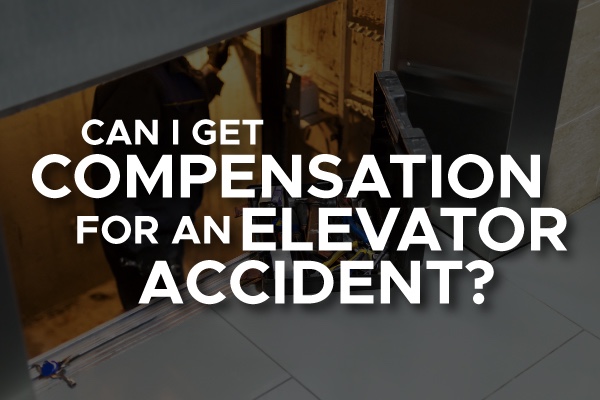
Taking the elevator is a daily occurrence for most people. Whether you’re going to work, going shopping, or going back to your apartment, you’re probably so used to these lifts that you go on autopilot, spending your time in there listening to the soothing elevator music as you let your thoughts wander. However, every now and then, the beeping of the floors passing by is suddenly interrupted with a grinding halt. The lights flicker and your heart skips as the elevator shakes and takes a violent drop. You fall as the elevator stops, slamming your arm against the floor and pinning it down with your body. Shooting pain tells you that your arm is broken, and this whole accident says that you have an elevator liability lawsuit on your hands.
While elevator accidents are not common, they do happen. Whether from poor maintenance, a design flaw, or the fact that the building owner refused to repair the elevator after multiple complaints, someone is responsible for the injuries and damages it may cause you. This article closely examines elevator accidents to determine what part of personal injury law it falls under and how you can get compensation.
What Is an Elevator?
Firstly, knowing what falls under the term “elevator” is extremely important for legal matters. A court will begin each case by addressing the type of elevator and going from there on whether a different party is responsible for the accident and whether any monetary compensation for damages or injury will be awarded. If you sue due to a faulty elevator but your case doesn’t technically have an elevator, the case as a whole can get thrown out.
An elevator, by technical definition, is a cage or a car that is installed in a building, whether commercial or residential, that is used for the vertical transportation of people or property. There are three types of elevators:
Manual Elevator
A manual elevator is operated by an attendant to take the passengers of the elevator where they need to go. The doors for these elevators are operated by hand. These types of elevators are traditionally found in older buildings, for example, buildings built before 1880.
Automatic Elevators
The automatic elevator is the most common type and most recognizable in today’s time. These elevators do not need an attendant to operate and can be called by the simple press of a button.
Escalator
Escalators also fall under the term “elevator” as the electronically-powered staircases perform the same purpose and function as elevators: getting people to the next level of a building. While escalators are slow and traditionally very safe, garments and hair can get caught in the belt, leading to potentially serious injuries.
I Was Involved in an Elevator Accident; Who Is Liable?
 Elevator accidents fall under a category of personal injury claim called negligence. Elevator accidents occur due to the negligence of a party, whether that be the owner of the building who failed to get it inspected or the manufacturer who failed to catch a faulty part. The party who will be potentially held responsible for the accident will vary depending on whether or not it can be proven that they acted negligently and that their negligence led to your injury. Here is what has to be considered/met to hold a party responsible:
Elevator accidents fall under a category of personal injury claim called negligence. Elevator accidents occur due to the negligence of a party, whether that be the owner of the building who failed to get it inspected or the manufacturer who failed to catch a faulty part. The party who will be potentially held responsible for the accident will vary depending on whether or not it can be proven that they acted negligently and that their negligence led to your injury. Here is what has to be considered/met to hold a party responsible:
- The party failed to uphold his duty of care to the injured party
- The negligence resulted in the accident which caused injury to another
- The harm that came to the injured could have been reasonably anticipated and prevented had the negligent party practiced more care
Who Is Potentially Liable for an Elevator Accident?
Many different parties that could be responsible for the accident. These individuals include:
- The owner of the building or property
- The elevator maintenance company that was hired to inspect/repair the elevator
- The designer or manufacturer
- The elevator installer
- Attendants or employees responsible for operating the elevator (this generally only counts for a manual elevator)
What Are the Most Common Types of Elevator Accidents?
Elevator accidents are not common but they do happen. Here are the most common claims made by individuals after being involved in an elevator accident:
- The elevator door shut unexpectedly on an individual
- The elevator has a sudden free-fall or rapid movement that resulted in injury
- An individual fell down an open elevator shaft that was not readily visible
- The elevator got stuck between floors for a significant amount of time
- There was a defect in the design or manufacture of the elevator or the doors
The Personal Injury Attorneys Who Can Help You Claim Compensation
If you were injured in an elevator accident and are looking to get compensation for your injuries, the attorneys of the Hernandez Law Group, P.C. can help! We understand that the legal process can be complicated, confusing, and stressful. Focus on your recovery while our experienced team focuses on getting you the compensation you deserve. Contact our team today for more information or to schedule a free no-obligation consultation.
